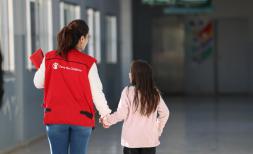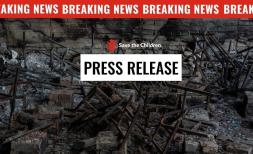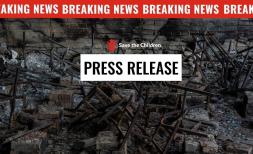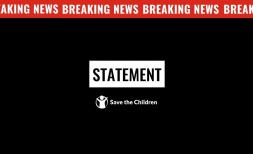Save the Children warns against risk of trafficking children from Haiti
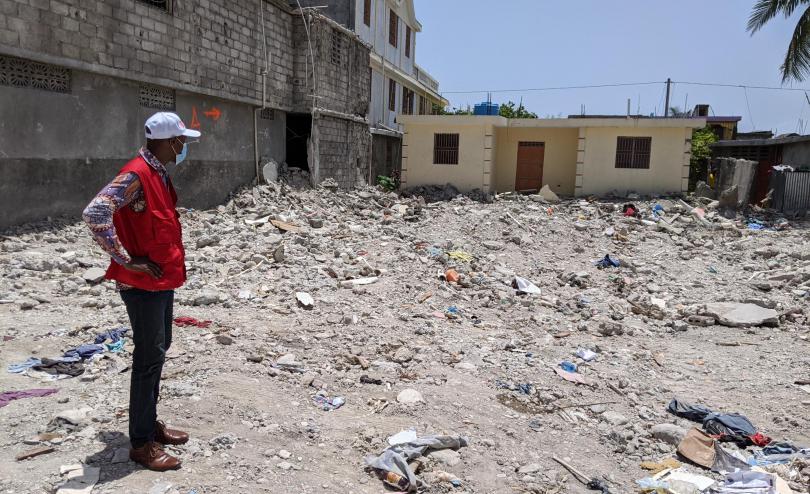
LES CAYES – Save the Children is deeply concerned about the safety of foster children and children who have lost their parents in the recent earthquake in Haiti, as they are at risk of neglect, different forms of abuse or even trafficking.
An estimated 30% of 48 children’s homes in the south of Haiti that care for about 1,700 children were damaged by the earthquake on Aug 14, according to reports, forcing children onto the streets and sleeping outside. Some children are now being cared for by foster families.
The 7.2 magnitude earthquake claimed around 2,200 lives with thousands more injured, and an unknown number of children likely losing their parents. In crises like these, unaccompanied children face a higher risk of abuse and neglect, Save the Children warned.
Fabienne*, 24, lives in one of the children’s homes where she helps to care for other children. She goes to a nursing school and was inside the building when the earthquake happened:
“Because of the earthquake, we cannot go inside. We are sleeping outside, and looking at the house with no possibility to enter again. And also school has stopped, this is shocking.
“When it happened, we started to run and we ran all into each other. I was slightly injured and unfortunately when we got downstairs we saw dead bodies that were sent to funeral homes. Thank God the building didn't fall.
“Life has changed in a way that I now feel traumatised. I am afraid that I don't feel the aftershocks. I don't want to go inside because I'm that stressed, that I don't know whether to run or not.”
Save the Children has been helping some of the impacted foster homes with items like tarpaulin sheets, jerry cans and other basic goods, and is urging for extra protection for these already extremely vulnerable children. It also supported the reactivation of a coordinating group of organisations that work on protection.
“But more needs to be done urgently to keep them safe. We are worried about the risk of possible illegal adoption of vulnerable children from Haiti”, said Perpetue Vendredi, Save the Children’s deputy country director. “Hundreds of children were taken out illegally of the country after the 2010 earthquake by western organisations. That cannot happen again.”
After the earthquake of 2010 that claimed about 230,000 lives, children were illegally ‘adopted’ and taken to other countries with adoptions fast-tracked, although many children most likely still had at least one parent or other family. According to early estimations, between 1,000 and 2,000 children were taken out of Haiti in the first few months after the 2010 earthquake.
Ms Vendredi continued:
“Often, children in foster homes still have at least one parent, but families don’t have the means to take care of them. That’s a heart-breaking decision to make for any parent, and instead of taking these children even further away from them, we need to tackle the root causes of why children are brought to foster homes – poverty, a lack of a future. Children who have lost their parents are far better off in their own communities, in foster families or with extended family.”
Children from foster homes that were impacted by this month’s earthquake need extra protection, and the foster homes need urgent support to ensure that they can shelter children in a child friendly and safe way and help them to cope with their experiences, Save the Children said.
Save the Children emphasised that foster homes are always the last resort for children and it is far better to find families who can take care of children if they are really orphans, preferably extended family.
